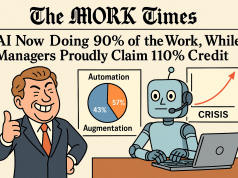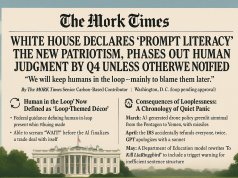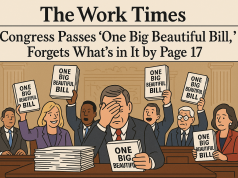In today’s rapidly evolving job market, researchers are increasingly stepping out of the confines of their traditional roles in academic and laboratory settings to chart new career paths. This seismic shift is not merely a trend but a robust movement that is redefining the essence of what it means to work ‘in research.’ The exodus of talent from familiar terrain to uncharted territories begs the question: What is driving this change, and how will it shape the future of work?
The impetus for this change is multifaceted. Researchers are beginning to recognize the limitations of traditional academic roles, including often precarious funding situations and the fierce competition for tenure-track positions. At the same time, the skills they possess are in high demand in various industries—ranging from policy-making to tech startups, from business consulting to science communication. These roles require a level of adaptability and a breadth of skills that researchers, with their critical thinking, problem-solving, and data analysis abilities, are uniquely qualified to provide.
As researchers navigate these uncharted waters, success stories emerge. Take, for instance, the researcher turned entrepreneur who leverages her expertise in bioinformatics to develop cutting-edge healthcare solutions. Or the climate scientist who now advises policymakers on sustainable urban planning. These individuals exemplify the ways in which researchers can impact society beyond the lab bench.
However, the transition is not without its challenges. Researchers often face a steep learning curve when adapting to new industries—networking, business acumen, and a grasp of industry-specific knowledge can be sizable hurdles. Moreover, systemic barriers, such as rigid hiring practices that fail to recognize the value of research expertise in non-academic contexts, can stymie progress.
So, how can interdisciplinary environments benefit from the unique perspectives that researchers bring? By fostering workplaces where questioning, exploring, and rigorous analysis are the norms, companies and organizations can spur innovation and tackle complex problems with scientific rigor.
To ensure that researchers are well-prepared for this shift, the current education and training systems must evolve. Universities and research institutions should offer more courses focused on skills such as entrepreneurship, communication, and policy analysis. Additionally, these institutions can play a pivotal role in supporting non-traditional career trajectories through mentoring, career services, and partnership opportunities with industry.
Breaking down systemic barriers involves creating workplaces that appreciate the depth and breadth of research skills. This could mean reassessing job descriptions to highlight competencies over credentials or fostering a culture of lifelong learning where on-the-job training is provided.
In conclusion, through open dialogue and concerted effort across educational institutions, industry, and policymakers, we can create a future where the skills of researchers are not only recognized but sought after in a diverse array of professional landscapes. It is incumbent upon us to embrace the wealth of knowledge and analytical prowess that researchers can bring to our workspaces, driving progress and innovation in ways we have yet to fully realize.




























